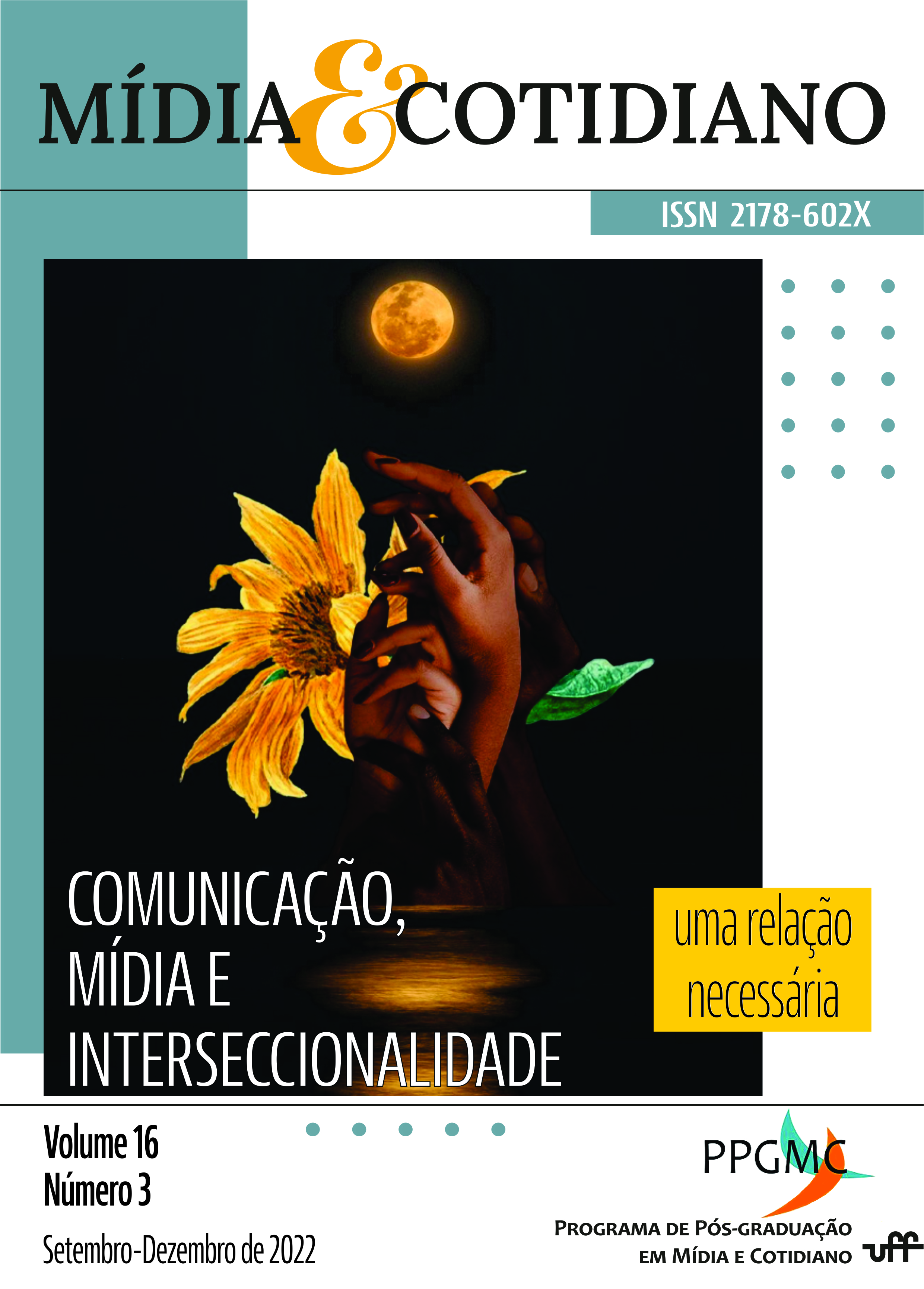The edge of the pool: an analysis of the film "The second mother" in dialogue with the imaginary about Brazilian social inequality
DOI:
https://doi.org/10.22409/rmc.v16i3.53398Keywords:
The second mother, Social inequality, Dialectical imageAbstract
In this paper we carry out an analysis of the feature film The second mother (MUYLAERT, 2015) with an emphasis on the figure of the pool and its symbolism in the narrative of the movie through the theoretical framework of authors linked to the study of image and art. We take as a starting point the understanding of cinema as a documentary registry of its time which allows us to reflect on the world it portrays in a historical perspective. From this initial paradigm driven by Kracauer's theory (1960) and from previous thoughts by Schopenhauer (2014), we draw parallels between the figure of the pool present in the film and the concept of dialectical image — derived from the reading of Didi-Huberman (1998) — given the bond between the characters and their social and political context in the Brazilian imaginary.
Downloads
References
BENJAMIN, Walter. A obra de arte na era de sua reprodutibilidade técnica. Porto Alegre: L&PM Editores, 2018
BENJAMIN, Walter. Passagens. Belo Horizonte: Editora UFMG; São Paulo: Imprensa Oficial do Estado de São Paulo, 2009.
BRUM, Eliane. A boa sinhazinha e a boa escrava – nunca mais. In: MUYLAERT, Anna. Que horas ela volta? São Paulo: Klaxon, 2019. p. 1-6.
CASA, Grande. Direção de Fellipe Gamarano Barbosa. Brasil: Migdal Filmes, 2014 (115 min.).
DAMATTA, Roberto. A casa e a rua: espaço, cidadania, mulher e morte no Brasil. Rio de Janeiro: Rocco, 1985.
DIDI-HUBERMAN, Georges. O que vemos, o que nos olha. São Paulo: Editora 34, 1998.
ELIAS, Juliana. Desigualdade no Brasil cresceu (de novo) em 2020 e foi a pior em duas décadas. CNN Brasil, 2021. Disponível em: https://www.cnnbrasil.com.br/business/desigualdade-no-brasil-cresceu-de-novo-em-2020-e-foi-a-pior-em-duas-decadas/. Acesso em: 17 de agosto.
FREITAS GUTFREIND, Cristiane. Kracauer e os fantasmas da história: reflexões sobre o cinema brasileiro. Comunicação Mídia e Consumo, v. 6, n. 15, p. 129-144, 2009.
FREYRE, Gilberto. Casa-grande & senzala: formação da família brasileira sob o regime da economia patriarcal. São Paulo: Global, 2003.
IBGE. Síntese de indicadores sociais: uma análise das condições de vida da população brasileira: 2020. IBGE, Coordenação de População e Indicadores Sociais. Rio de Janeiro: IBGE, 2020.
KRACAUER, Siegfried. From Caligari to Hitler: a psychological history of the german film. Princeton: Princeton University Press, 2004.
KRACAUER, Siegfried. Theory of Film: the redemption of physical reality. Nova Iorque: Oxford University Press, 1960.
MAFFESOLI, Michel. O elogio da razão sensível. Petrópolis: Editora vozes, 1998.
MAFFESOLI, Michel. Michel Maffesoli: o imaginário é uma realidade. Revista FAMECOS, v. 8, n. 15, p. 74-82, 10 abr. 2008.
MUYLAERT, Anna. Que horas ela volta? São Paulo: Klaxon, 2019.
QUE horas ela volta? Direção de Anna Muylaert. Globo Filmes, 2015. (114 min.).
RIBEIRO, Djamila. Pequeno manual antirracista. São Paulo: Companhia das Letras, 2019.
SCHOPENHAUER, Arthur. O mundo como vontade e representação: tomo II, Complementos, Livro III-IV, v. 2. Curitiba: Editora UFPR, 2014.
SCHWARCZ, Lilia M.; STARLING, Heloisa M. Brasil: uma biografia. São Paulo: Companhia das Letras, 2015.
Downloads
Published
Issue
Section
License
Aviso de Direito Autoral Creative Commons
1. Política para Periódicos de Acesso Livre
Autores que publicam nesta revista concordam com os seguintes termos:- Autores mantém os direitos autorais e concedem à revista o direito de primeira publicação, com o trabalho simultaneamente licenciado sob a Licença Creative Commons Attribution que permite o compartilhamento do trabalho com reconhecimento da autoria e publicação inicial nesta revista.
- Autores têm autorização para assumir contratos adicionais separadamente, para distribuição não-exclusiva da versão do trabalho publicada nesta revista (ex.: publicar em repositório institucional ou como capítulo de livro), com reconhecimento de autoria e publicação inicial nesta revista.
- Autores têm permissão e são estimulados a publicar e distribuir seu trabalho online (ex.: em repositórios institucionais ou na sua página pessoal) a qualquer ponto antes ou durante o processo editorial, já que isso pode gerar alterações produtivas, bem como aumentar o impacto e a citação do trabalho publicado (Veja O Efeito do Acesso Livre).


